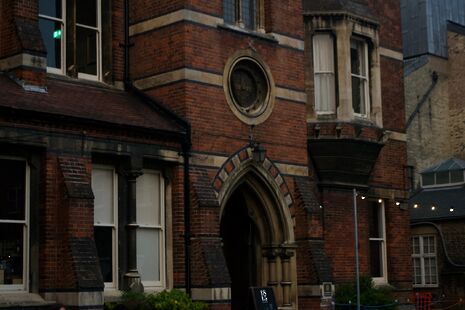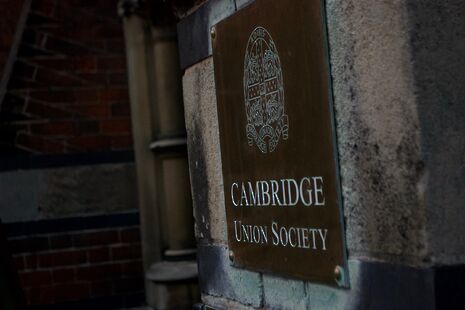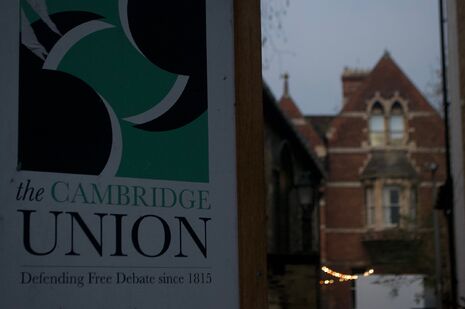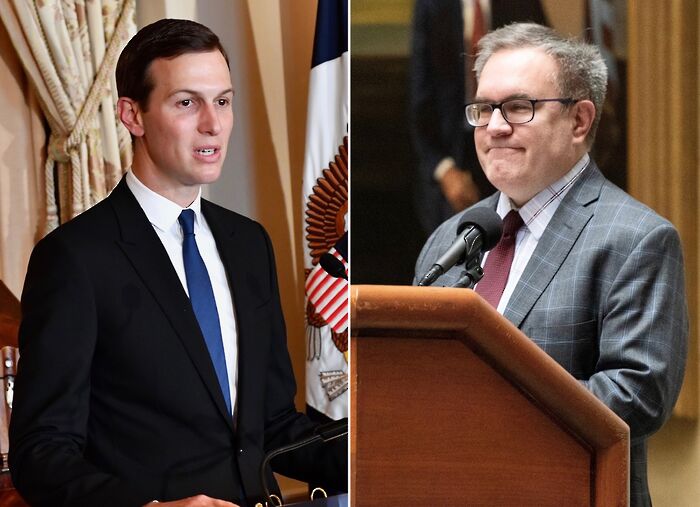‘Running for elections does break friendships.’ One student’s experience in The Cambridge Union Society
A former candidate for Union president discusses the pressures and challenges they experienced during the election period

“It was just so alien to my background it seemed like another world,” explains a former member of the Cambridge Union’s standing committee, speaking of their initial impressions of the society.
A little over a year after first setting foot in the Union’s debating chamber, they stood to take the helm of one of the University’s most prestigious societies as President.
Asked what drew them to the Union initially, the candidate explains: “It felt like a place that I could do something big and tangible in”.
Today, they tell Varsity: “If you run in a Union election, you’ve got to be willing to put yourself through absolute hell.”
Over the course of their campaign for Union President, this candidate faced falsified screenshots of slanderous messages and the dissemination of false claims regarding their policies, although there is no suggestion that their opponent was involved or implicated in this. Events resulting from the candidate’s ill-health were used by their opponent’s campaign team as proof of incompetence to take on the role, although the opponent has themselves denied having had knowledge of the candidate’s personal health at the time.
During Union elections, candidates are able to present official complaints regarding electoral malpractice on their opponent’s part, which are called ‘challenges’, after the voting period has closed. If a challenge is upheld, a certain percentage of the defendant’s votes are docked.
The first challenge faced by this candidate concerned a health crisis experienced during their time on the Union’s standing committee, a group which consists of 12 individuals elected by Union members. They told Varsity that multiple members of their opposition’s campaign team were “intimately aware” of their health issues at that time.
Their opponent argued that the candidate’s claim to have organised a certain Union debating event on their manifesto was “objectively untrue and intentionally misleading”, because the candidate had been unable to act as its direct organiser during the days on which the event took place.
A testimony provided to support this challenge, which ultimately did not pass , claimed that the candidate had demonstrated “incompetence and [a] lack of work” while organising the event.
As per the Union’s constitution, the candidate submitted a response defending their claim to the Union’s Returning Officers, the people responsible for making the final decisions on challenges. In this response, they explained that they had been replaced as the event’s organiser just three days before it took place. Prior to this, they acted as the event’s sole primary organiser for almost two months, since their co-organiser had dropped out, and their replacement came about because they “suffer[ed] from incredibly serious health problems” that term, which “culminated in a health crisis” at the time of the event.
“I thought we would keep some kind of moral boundaries around the issue”
The candidate needed to submit their response within 12 hours of the submission of the original challenge. They highlight the intensity of having to defend themselves, particularly concerning personal experiences of ill-health, saying that they were shocked by the “weaponsing of someone’s hurt” in an election.
“I thought we would keep some kind of moral boundaries around the issue”, the candidate remarks.
“Running for elections does break friendships.”
Following this challenge, the candidate was then met with allegations of having sent slanderous messages about their opponent via Facebook, based on screenshots of a conversation in which they supposedly disputed their opponent’s commitment to access and diversity. The screenshots were sent to their opponent’s University email account at 6am from an anonymously generated email address. At this time, the candidate’s opponent was unable to ascertain that these screenshots were not genuine.

The candidate, again, had just 12 hours in which to prove that the images were fake and to submit a response to the Returning Officers. They explained, “I had to contact my friend who’s a CompSci [computer scientist] and have them help me prove it”, pointing out certain inconsistencies, for example, in the Facebook Messenger layout within the screenshots.
The challenge was ultimately dropped when their opponent realised that the screenshots had indeed been falsified.
The final outcome of the election would not have been altered had either of these challenges passed, due to the relative number of votes cast for each candidate. However, the candidate notes that, in this case, the stakes were far higher than simply the outcome of this particular Union election, and such a serious allegation may have affected their future reputation and prospects: “I keep thinking: what if they were better screenshots, and I couldn’t prove they were fake? That could’ve stayed with me forever.”
The candidate told Varsity: “On some level, you expect bitching, you expect rumours [...] but fake screenshots and the weaponising of health I think is unprecedented.”
In a statement to Varsity, the opponent noted: “I was unaware of the health issues faced by [the candidate] as well as the fact that the screenshots were falsified. Elections of any sort are always challenging and I respected all candidates, immediately reporting any breach that I was made aware of to the Returning Officers.”
Meanwhile, the candidate was also approached by a fellow Union debater asking whether it was true that they planned to cut funding for international debating competitions. This was not, in fact, one of the candidate’s policies. The candidate had never expressed such plans during campaigning, and such a policy was not mentioned on any of their campaign materials. It transpired that such a claim had been made by an individual authorised to send messages on behalf of the candidate’s opponent, and although the candidate brought this issue as a challenge to the Returning Officers, this challenge did not pass.
The Cambridge Union claims to be the University’s largest student society, with over half the student population having purchased a life membership. However, the Union’s standing committee comprises just 12 individuals. Therefore advancing within the society, explains the candidate, relies in large part on navigating this very small circle.
Once you reach standing committee, says the candidate, your decisions are to a certain extent governed by how they will be perceived by other members of the committee – the support of whom is often essential in future elections. The candidate speaks of a “very weird” dynamic within the committee, because, even while simply socialising with their fellow committee members, the candidate believes that many students are thinking tactically about their future within the society.

The candidate believes that this is why talk of foul play within the society, such as the incidences discussed, is, in their experience, rare beyond those very few highly involved members. Even in severe cases, they argue, there remains an “incentive for things to be hushed up”.
“You go to the press, you turn [the accused] and all [their] friends against you, and you ruin your chances of ever standing for election again.”
Beyond social complications, there are also certain financial pressures which come with advancing within the society. At the point of first joining the Cambridge Union, standard lifetime membership currently costs £185. The cheapest membership fee available to students, at £99, is only available to those on a full Cambridge bursary.
“In some ways the Union is getting more diverse, but in other ways most people are from the same background.”
Had this candidate won the presidential election, they would have been the first Cambridge Union president who had not been educated at either a private school or a grammar school since at least 2014. Cambridge Union Presidents are elected on a termly basis.
The Cambridge Union committee told Varsity: "The Union takes its commitment to diversity and inclusion seriously, as reflected in our first majority female and majority BME committee this term. We are constantly working to further our efforts to include those marginalised on the basis of class and other distinctions. Having launched major access initiatives both within the University and amongst local Cambridge schools, we are always seeking to further our social impact.
“This includes excellent support to our debaters, with all registration fees covered and substantial financial aid for domestic and international travel. Electoral procedure is detailed in the constitution and conducted with multiple layers of checks and measures."
The candidate’s experience of the Union, having joined as a fresher, “was similar to the culture shock of coming to Cambridge”. They speak of a “very subtle sense of exclusion” when socialising with students from more privileged backgrounds, many of whom have a “shared culture and understanding” due to their previous educational experiences.
The prestige of the Cambridge Union is undeniable, and taking on the role of President – while certainly tough – offers “a lot of clout”, both socially and professionally.
Speaking of the reasons behind their decision to run for a position on the Union’s standing committee, and then, ultimately, for the role of President, the candidate says: “I would be lying if I said it wasn’t partly ego”, but also notes their desire to “force through good policies that would really start to break down the harmful things about the Union”.
Asked, now, what advice they would offer to their fresher self, having run for Union President, the candidate says: “Be less invested coming in.” They explain, “I was so naive about what it takes to change big structures and how much one person can do.”
 News / Christ’s announces toned-down ‘soirée’ in place of May Ball3 February 2026
News / Christ’s announces toned-down ‘soirée’ in place of May Ball3 February 2026 News / Right-wing billionaire Peter Thiel gives ‘antichrist’ lecture in Cambridge6 February 2026
News / Right-wing billionaire Peter Thiel gives ‘antichrist’ lecture in Cambridge6 February 2026 News / John’s duped into £10m overspend6 February 2026
News / John’s duped into £10m overspend6 February 2026 News / Epstein contacted Cambridge academics about research funding6 February 2026
News / Epstein contacted Cambridge academics about research funding6 February 2026 News / Corpus FemSoc no longer named after man6 February 2026
News / Corpus FemSoc no longer named after man6 February 2026











